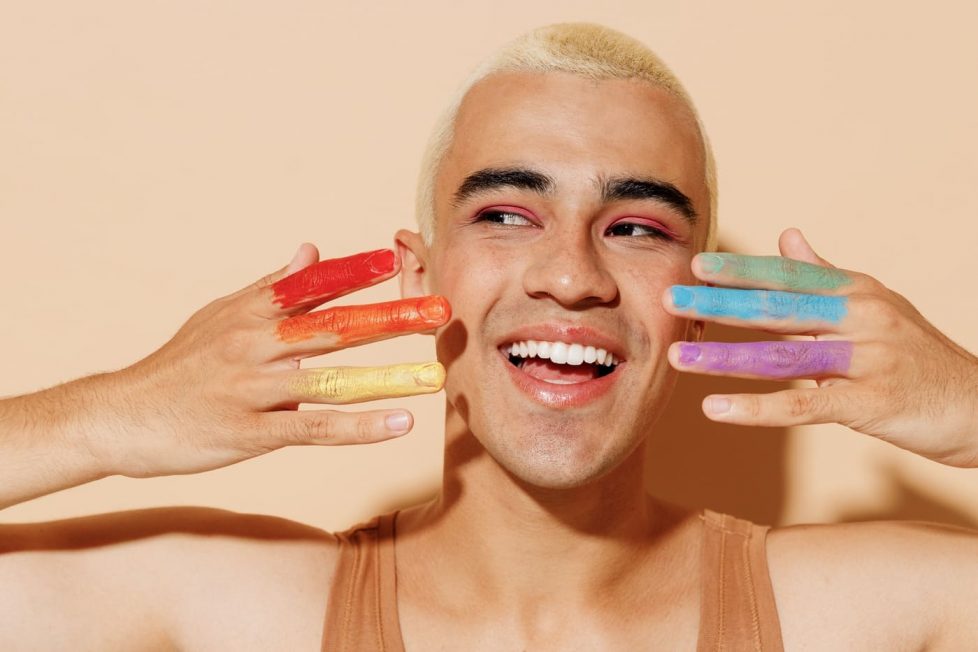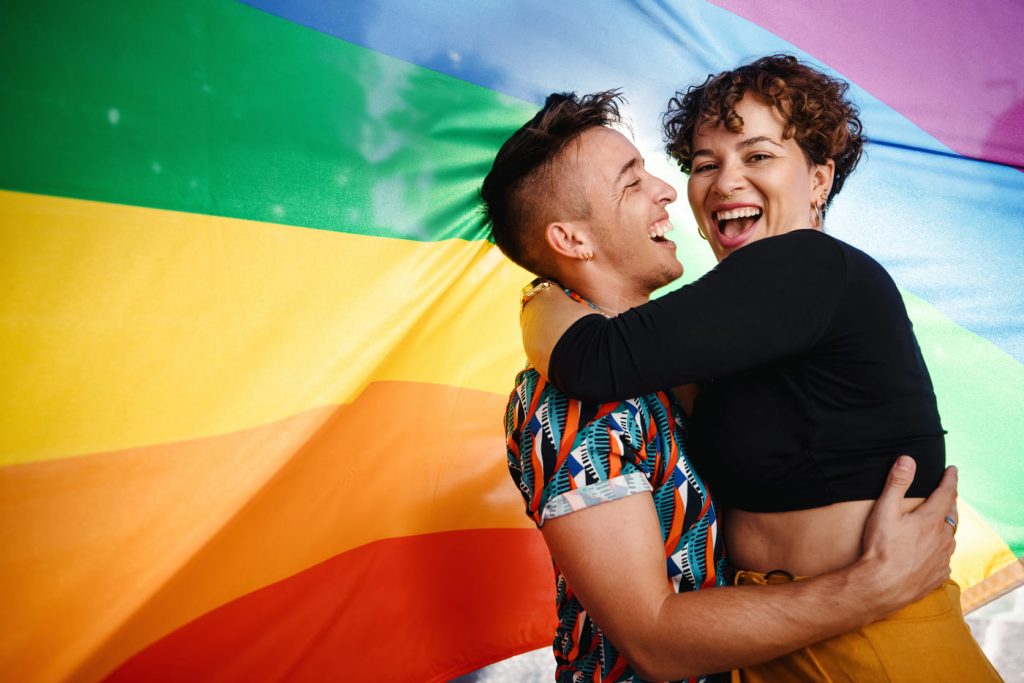This is what the word “Queer” really means
Queer is often used as an umbrella term to denote sexual identity within a particular community.

Queer is often used as an umbrella term to denote sexual identity within a particular community.

Some find queer an easy way to describe such a large community. Labeling people whose sexual identities fall outside of heterosexuality may create solidarity among people based on commonality, which may in turn encourage them to identify with one another and create a community in which they find support and organize to initiate a political movement.
The word “queer” has never had one exact meaning. The term has evolved throughout the centuries, and there have always been people who didn’t see eye to eye regarding its meaning. Many theorists believe that the world has its roots in the German word “quer”, which refers to an angle that is not parallel but not right either. By definition, queer is something that’s not straight, something unusual.
The word made its way to the English language by the 19th century. In English, it has immediately gained a negative connotation. The word was used to describe people or events that were strange, suspicious, or even crazy. “Queer street”, for example, was used to describe a difficult situation. The word could also serve as a verb in phrases like “queer someone’s pitch”, which refers to ruining someone’s plans.
Today, “Queer” is a word that describes sexual and gender identities other than straight and cisgender. Lesbian, gay, bisexual, and transgender people may all identify with the word queer. Queer is sometimes used to express that sexuality and gender can be complicated, change over time, and might not fit neatly into either/or identities, like male or female, gay or straight.
Finding an umbrella terms for a community as diverse as ours isn’t easy. Over the last 50 years, we’ve cycled through a great deal of them. The ‘gay community’ became the ‘gay and lesbian community’, then the ‘LGBT community’, or the ‘LGBTIQ community’, and so on. Think for a moment: the word gay used to mean ‘happy’ and queer used to mean ‘strange’ or ‘different’. But like all words, its use evolved over time and quickly came to mean something different.

For almost a century, the term bore a predominantly negative connotation. However, in the 1960s, things have started to change in the “Queer vs. Gay” debate. The gay rights movement has erupted in response to queer bashings and police brutality towards LGBTQ+ people. Calling themselves by the same word that was used to oppress them was a rebellion against the discrimination of LGBTQ+ people.
Besides, many people disliked the words “gay” or “lesbian” and felt a need for a term that would be less rigid and more inclusive. Since all LGBTQ+ people were called queer, and the word seemed to take power away from the LGBTQ+ people, it was only natural that some people started claiming it as their own.
The biggest change in the use of the term came in the 1990s. On top of police brutality and systemic discrimination, LGBTQ+ people also had to deal with AIDS at that time. It was a huge public health crisis, and the governments’ response was underwhelming, to say the least. That united gay, lesbian, and transgender people even further. Many gay-rights groups were created and demanded fair treatment of LGBTQ+ people. One of the most vocal of them was Queer Nation.
The group’s activism culminated during New York City Pride in June of 1990, where its members handed out their Queers Read This pamphlet. That text would later become the basis of queer theory and mark an important milestone in the gay and lesbian rights movement. It also made a somewhat radical suggestion. It proposed that LGBTQ+ people reclaim the word “queer”, make it their own, wear it as a badge of honor, and stand up to the society that used it as a derogatory term.
There are loads of reasons why people identify with queer, either individually or as an umbrella term. It encompasses a wide range of identities, and doesn’t risk excluding groups that the acronym may leave out. Some people find queer’s ambiguity appealing since it gives a sense of community without the need for a more specific label. You might be gay, I might be trans, but we’re both queer and that brings us together. A lot of people like it because it’s easy to say with decidedly less syllables than LGBTQIA+. Overall, it’s easier to use and remember, especially if this all new to you.
That said, there are many people who dislike the term, mostly due to its history as a slur (a word people use with hate). In the 1960s onwards, people used the word queer as a weapon, usually saying it when attacking or trying to humiliate LGBTQIA+ people.
